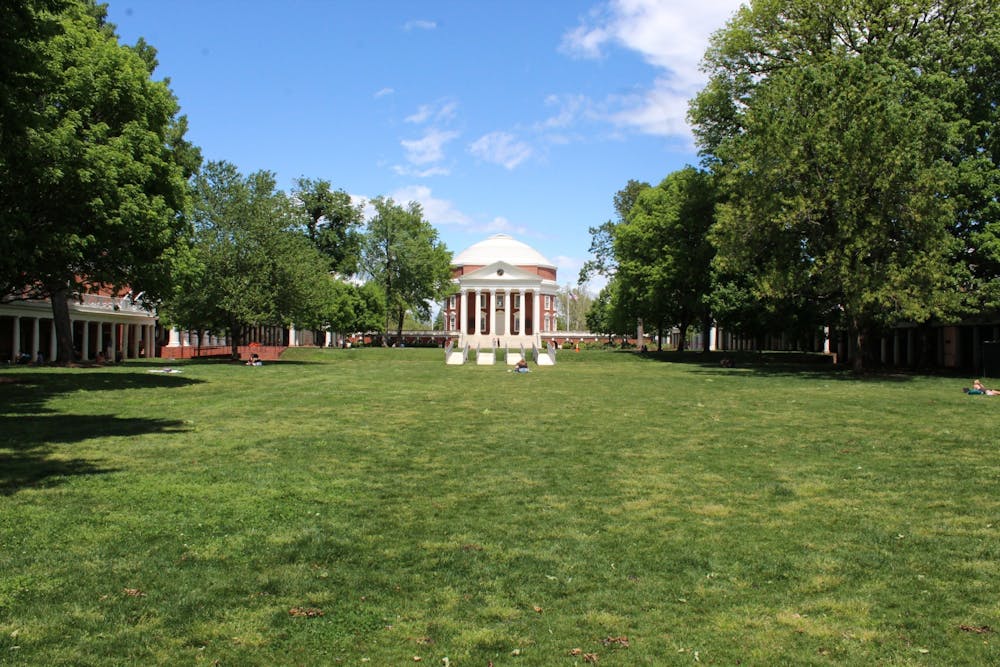中文版请点击此处
Few universities in the world have the same devotion to their founder as the University has to Thomas Jefferson. While it would be easy to write about how Jefferson’s love of classical architecture influenced the construction of the Lawn and the Rotunda, I instead examine the idea of the Academical Village as opposed to its physical structure. The University has quite a bit of love for this concept — it shows up in the advertising of U.Va. to prospective students and was the cornerstone for the foundation of the residential colleges. Even today, Housing and Residence Life’s website on the residential colleges echoes this message with the tagline of “unique on-Grounds living-learning communities, residential colleges mirror the ideals of Jefferson's Academical Village, where ‘shared learning infuses daily life.’” Even with all the talk about continuing the legacy of Jefferson in the way the University is administered, we do not truly meet the standard the Academical Village intended to set.
Being entirely frank, I do not believe that the Academical Village ever truly existed in the sense that Jefferson wanted it to. While it was an admirable goal to reinvent the concept of higher education in such a radical way, from the very beginning students did not appreciate it or work towards it. For anyone familiar with the introduction of the Honor system to the University, the students of the 1800s were far from the best and brightest scholars. The early history of U.Va. shows us that the wealthy Southerners who attended this institution cared more for gambling, drinking and dueling than they did for engaging in academic discussion with professors. The students of the University were so much more focused on vice that they ended up killing Prof. John Davis on the Lawn in 1840 — obviously, this interaction is quite far from what Jefferson had imagined.
There are some who will argue that I am defaming Jefferson by pointing out the failure of implementing a living-learning community. Given his track record on other fronts — like his perpetuation of white supremacy — I hardly consider such criticism of U.Va. to be harsh in the slightest. If the Academical Village is to be more than just a location at the University and become a real practice that will aid the learning of students, then it is necessary to point out the historical failing and fight to be better. There have undoubtedly been students who have formed great relationships outside of class with professors, and such bonds should be rightly celebrated. However, this is not an experience that everyone has, be it out of time constraints or uncertainty of how to make such connections. Still, it must be said that it is not impossible to work towards a more integrated learning environment.
From a personal perspective, I am a resident and Historian Co-Chair of Brown College at Monroe Hill, the first residential college at the University. The founding plans for Brown from 1984 and 1985 are quite explicit that this housing experience is to be modeled off the concept of the Academical Village — something that the Old and New dorms simply couldn’t do. In the reports that were published in the years following the 1986 opening of Brown, the view from the faculty was that Brown was a success. Brown boasted a large list of fellows and balanced a community for students with faculty interaction. Yet even then and especially today, this image of a living-learning community is one that has not existed as the Jeffersonian ideal — times change and people alongside them. Most residents of Brown today do not view the College as being a living-learning community in the strictest sense, but they do value the self-governance it grants and desire to interact with faculty. In this sense, it might best be considered that just as the Academical Village was an idea of Jefferson’s time, it must evolve to fit our time today.
There are a number of ways that the University could make improvements to the academic environment. If a drastic approach is desired — one which would cost a great deal of money and also likely anger a majority of the student body — they could create more housing and have all students stay in dorms for their time at the University. This would very easily allow the integration of faculty into student life by having resident fellows in the same vein as the residential colleges. That being said, this is an absurd possibility that will never come about.
A better way would be to have resident fellows in New and Old dorms who could live alongside students. Aiding students in connecting with professors in their intended fields of study could help those who might be uncertain or uncomfortable with just reaching out to a faculty member. This could also prove to be a beneficial option for younger educators who might not be able to afford Charlottesville’s incredibly high cost of living. For residential colleges, finding new ways to engage with faculty that appeals to the changing tastes of students will be the key to success in maintaining the stated goal but evolving it all the same. There are endless possibilities, but any of them could help change the Academical Village from a marketing gimmick into a reality.
Ryan Lanford is a Viewpoint Writer for The Cavalier Daily. He can be reached at opinion@cavalierdaily.com.
The opinions expressed in this column are not necessarily those of The Cavalier Daily. Columns represent the views of the authors alone.







